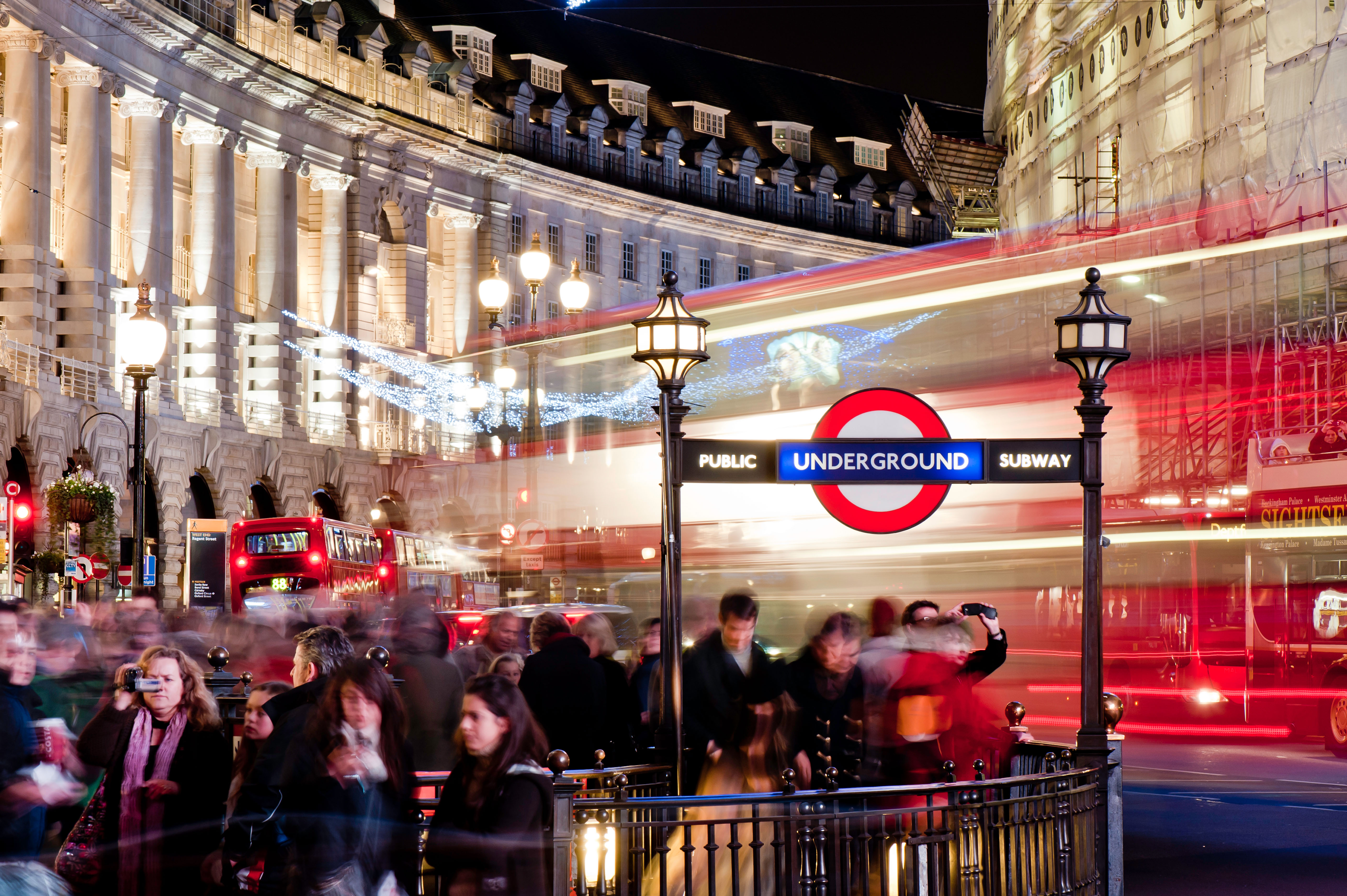What living abroad taught me about money management
Living in another country is great. It's also expensive.


A free daily email with the biggest news stories of the day – and the best features from TheWeek.com
You are now subscribed
Your newsletter sign-up was successful
On June 23, 2016, British voters gave me a little raise. They voted in favor of Brexit, causing the value of the pound to plummet to its lowest level in 31 years. As a London-based American expat who'd voted Remain, I was furious. I was also flush.
Well, as flush as a Yank who is paid in U.S. dollars but spends in sterling can hope to be, given the unfavorable exchange rate. At the time I was working freelance for a New York City-based media company, for which I was paid a nice tidy sum which eventually made its way into my British bank account with a couple of digits shaved off. With the pound in a post-Brexit free-fall, however, the currency exchange inched closer in my favor. The day after the referendum, I crunched the numbers and realized I'd made an extra $22 for a day's work.
Keeping an eye on exchange rates is par for the course when you're living abroad. Even after more than eight years as an expat — I have an Irish passport through descent thanks to my late grandfather — I'm never not calculating how much something is actually costing me. Rent. An Uber fare. A pack of clothes hangers from the pound shop — or, as I dubbed it during a particularly robust moment for the British economy, the two-buck shop.
The Week
Escape your echo chamber. Get the facts behind the news, plus analysis from multiple perspectives.

Sign up for The Week's Free Newsletters
From our morning news briefing to a weekly Good News Newsletter, get the best of The Week delivered directly to your inbox.
From our morning news briefing to a weekly Good News Newsletter, get the best of The Week delivered directly to your inbox.
When I first contemplated a move across the pond, I thought only of the floppy-haired Hugh Grant types I would date and the Burberry trenches I would buy. I had no clue about taxes (so, so many taxes) or National Insurance or international bank fees. Now I do. Allow me to save you aspiring expats some time before you book that one-way flight to Heathrow.
Exchange rates: As I write this, one American dollar is worth 76 British pence. If you're working for a British company that will pay you in pounds, this works to your advantage; commence gleeful fantasizing about shopping trips to New York City that make you feel like you're spending Monopoly money. If you're paid in dollars, or you're transferring your savings to pounds, you'll get less bang for your buck. Your £800 rent is actually setting you back more than $1,000 each month. Your $35,000 salary is worth only around £26,000. That morning latte is costing you a buck or two more than you think. Account for the imbalance.
Taxes: The only thing more anxiety-inducing than filing your income taxes? Filing them twice. The British tax year runs April 6 to April 5, with a filing deadline of October 31 or January 31, depending on whether you plan to submit them by paper or online. On top of that, U.S. citizens living abroad are still responsible for filing returns with Uncle Sam. The silver lining is that there's an automatic extended deadline of June 15. Thanks to the foreign tax credit and foreign earned income exclusion (currently set at $102,100), the U.S. return is typically just a formality, with no additional taxes owed.
Avoiding double taxation also means limiting your time on U.S. soil; to take advantage of the exclusion you must be abroad for 330 out of 365 days in a 12-month period. The IRS calls it the physical presence test. My mother calls it the "So This Is Why You're Not Coming Home For The Holidays" test.
A free daily email with the biggest news stories of the day – and the best features from TheWeek.com
Other taxes: Reason #481 why my first child will be named Her Majesty's Revenue and Customs: council tax and National Insurance. The former is a sort of property tax that funds local services such as recycling, park maintenance, and the fire department. The amount varies depending on where you live and the type of building you call home; discounts are available for students and those, like me, who live alone. National Insurance, meanwhile, is the U.K.'s answer to Social Security and covers the National Health Service, state pensions, benefits, and so on. If you are employed by a company, this will be taken out of your monthly paycheck; if you are self-employed, you'll be billed.
And then there's value-added tax, or VAT. This is a tax on goods and services which is often folded into the number you see on a price tag. If you have commissioned work — say, from the accountant you've hired to make sense of your first U.K. tax return — you'll notice a nice fat VAT charge tacked on at the bottom. If you're a visitor to the U.K., you can fill out a tax-free form and claim a VAT refund at the airport before heading home. If you're a resident, it's a no-go.
Banking: I can't speak for every U.S. bank, but mine charges me $5 every time I withdraw cash in the U.K. As such, you'll want to set up a British checking account as soon as possible. To do this, you'll need a local address and the patience to sit through countless questions about your five-year goals. Your efforts will be rewarded with a hilariously large set of "cheques" you will probably never use and a nifty contactless debit card, which you can swipe on public transport and use on purchases of £30 or less. If you're looking to also set up a high-interest savings account, it helps to have established credit first. I was once turned down for an account because I didn't have a U.K. credit card and hadn't registered to vote.
If you're wondering why anyone might voluntarily take on this financial headache, consider the power of free health care, free museums, and dirt-cheap flights to Paris and Madrid. And if all else fails: floppy-haired Hugh Grant types and Burberry trenches.
Erin Donnelly is an American-born, London-based journalist covering entertainment and lifestyle topics for publications like Refinery29, Elle, Nylon, and Playboy.
-
 Film reviews: ‘Send Help’ and ‘Private Life’
Film reviews: ‘Send Help’ and ‘Private Life’Feature An office doormat is stranded alone with her awful boss and a frazzled therapist turns amateur murder investigator
-
 Movies to watch in February
Movies to watch in Februarythe week recommends Time travelers, multiverse hoppers and an Iraqi parable highlight this month’s offerings during the depths of winter
-
 ICE’s facial scanning is the tip of the surveillance iceberg
ICE’s facial scanning is the tip of the surveillance icebergIN THE SPOTLIGHT Federal troops are increasingly turning to high-tech tracking tools that push the boundaries of personal privacy
